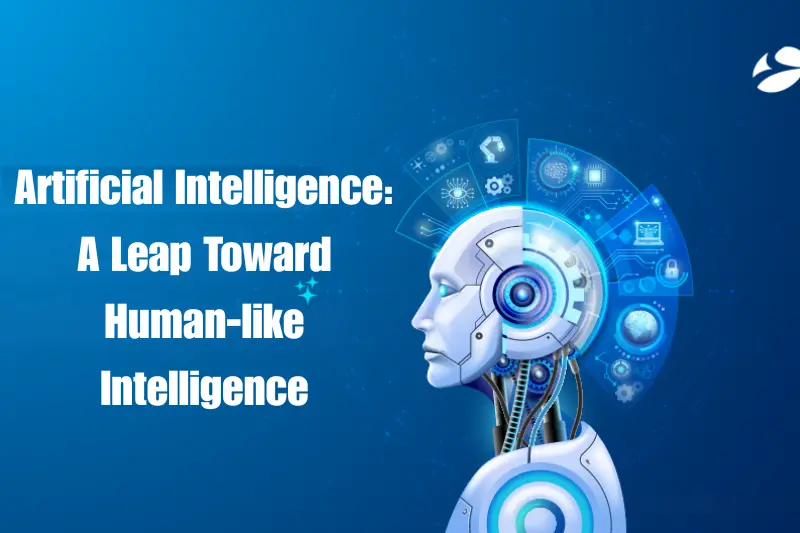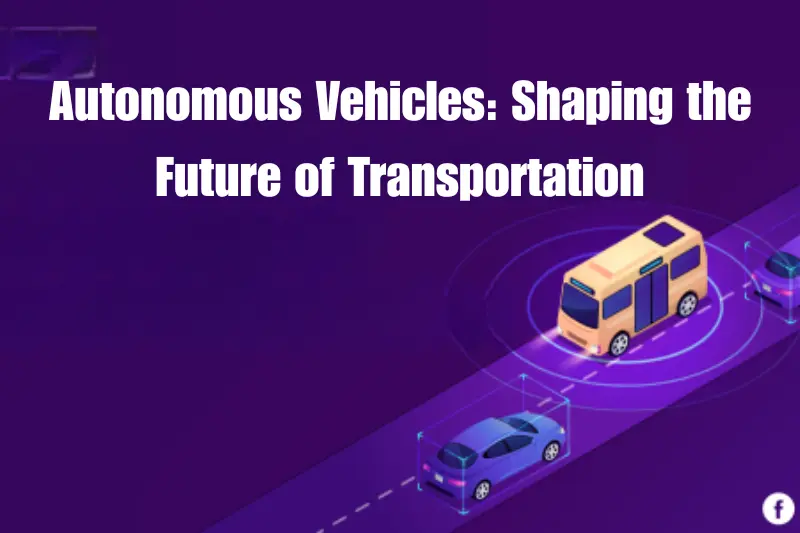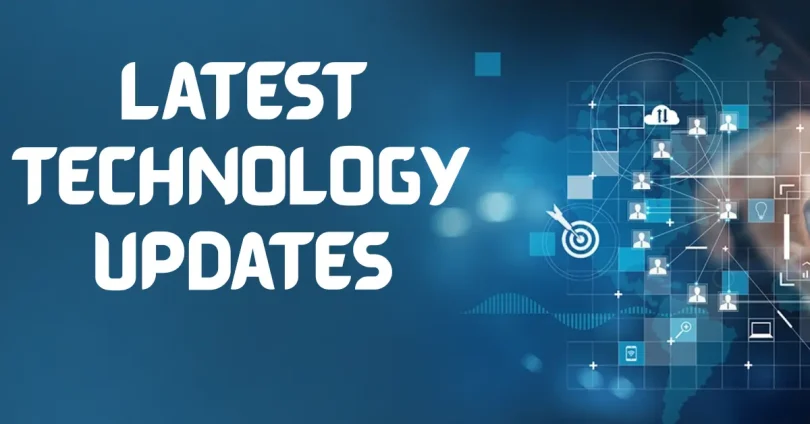In the ever-evolving world of technology, staying up-to-date with the latest trends and innovations is crucial for understanding how our world is transforming. From advancements in artificial intelligence to breakthroughs in space exploration, technology is continually shaping our future.
In this detailed article, we will explore the latest technology updates that are revolutionizing various industries and impacting our daily lives.
1. Artificial Intelligence: A Leap Toward Human-like Intelligence
 Artificial Intelligence (AI) has made significant strides in recent years, and its applications are now extending far beyond basic automation. AI systems have become increasingly sophisticated, capable of understanding and generating human language, recognizing images, and even performing tasks that were once thought to require human cognition.
Artificial Intelligence (AI) has made significant strides in recent years, and its applications are now extending far beyond basic automation. AI systems have become increasingly sophisticated, capable of understanding and generating human language, recognizing images, and even performing tasks that were once thought to require human cognition.
The latest technology updates in AI include the development of generative AI models, which can create content ranging from text and images to music and video. These advancements are not only transforming industries like entertainment and marketing but also have profound implications for fields like healthcare, where AI is being used for medical diagnostics and drug discovery.
Moreover, AI-powered chatbots and virtual assistants, such as OpenAI’s GPT series, are becoming more intuitive, helping businesses provide better customer service and personalized experiences. As AI continues to evolve, it is expected to play an even larger role in shaping industries such as finance, retail, and manufacturing.
You may also like to read this:
Top AI Trends In 2024: Revolutionizing Business And Tech
12 Best New Tech Gadgets 2024 You Can’t Miss
Top Emerging Tech Startups In The USA To Watch In 2025
Top Tech Stock Market Trends In 2024: AI, Cloud & More
Top Cybersecurity Challenges For US Businesses In 2025
Top Tech Trends 2024 USA: AI, Quantum Computing, 5G & More
Top Tech Stock Market Trends In 2024: AI, Cloud & More
2. Quantum Computing: Revolutionizing Problem-Solving
Quantum computing has long been a topic of intense research, but recent developments have brought it closer to practical use. Unlike classical computers, which rely on bits to process information, quantum computers use quantum bits (qubits) that can represent multiple states simultaneously, enabling them to solve complex problems much faster than traditional systems.
The latest technology updates in quantum computing include breakthroughs in quantum algorithms and hardware that enable more reliable and scalable systems. As a result, quantum computers are expected to tackle problems that are currently unsolvable with classical computers, such as simulating molecular interactions for drug development or optimizing large-scale supply chains.
In 2025, quantum computing is poised to revolutionize industries such as finance, cybersecurity, and material science by providing solutions that were previously out of reach.
3. Blockchain Technology: Beyond Cryptocurrencies
Blockchain technology, originally designed for cryptocurrency, is now finding applications in a wide range of industries. Blockchain’s decentralized, immutable ledger system is highly secure, transparent, and efficient, making it ideal for industries that require secure record-keeping and data sharing.
The latest technology updates in blockchain include smart contracts, which automatically execute and enforce terms when certain conditions are met. These contracts are being used in industries such as real estate, supply chain management, and finance, offering a more efficient and secure alternative to traditional systems.
Furthermore, decentralized finance (DeFi) platforms are reshaping the financial industry by enabling peer-to-peer transactions without the need for intermediaries. Blockchain’s potential for creating secure voting systems, identity verification systems, and supply chain transparency is also gaining traction.
4. 5G Networks: Ultra-Fast Connectivity for the Future
The rollout of 5G networks is one of the most significant technological advancements in recent years. With faster speeds, lower latency, and the ability to support millions of connected devices simultaneously, 5G is revolutionizing industries that rely on connectivity, such as telecommunications, entertainment, and healthcare.
The latest technology updates in 5G focus on expanding coverage and improving reliability, allowing for faster and more seamless connections for mobile devices, IoT devices, and autonomous vehicles. With 5G, users can stream high-definition video, engage in real-time gaming, and communicate more efficiently in ways that were previously impossible.
Moreover, 5G networks are enabling the development of smart cities and autonomous vehicles, as real-time data exchange between devices is essential for the functioning of these technologies. The 5G rollout is also improving the efficiency of industries such as manufacturing, logistics, and healthcare, where instant communication and real-time data analysis are critical.
5. Robotic Process Automation (RPA): Streamlining Operations
Robotic Process Automation (RPA) is transforming how businesses operate by automating repetitive, rule-based tasks. In 2025, RPA is evolving to become more intelligent, integrating with AI and machine learning to perform tasks that require cognitive decision-making.
The latest technology updates in RPA include the ability to handle unstructured data, such as text and images, and perform more complex business functions. This has made RPA a valuable tool in industries such as finance, human resources, and customer service, where it can handle tasks like data entry, invoice processing, and customer support.
As RPA continues to evolve, it is expected to play a larger role in improving operational efficiency, reducing human error, and enabling employees to focus on more strategic tasks.
6. Virtual and Augmented Reality (VR and AR): Transforming Interaction
Virtual Reality (VR) and Augmented Reality (AR) are no longer limited to gaming and entertainment. These technologies are rapidly expanding into industries such as education, healthcare, and real estate, providing immersive experiences that enhance learning, training, and consumer interaction.
The latest technology updates in VR and AR include improved hardware, such as more comfortable and lightweight headsets, as well as more powerful software that offers richer and more interactive experiences. In education, VR is being used to create virtual classrooms and field trips, while AR is enhancing in-person learning by overlaying digital information onto the real world.
In healthcare, VR is used for pain management, physical therapy, and surgical training, while AR is improving patient care by providing doctors with real-time data during procedures. The combination of VR and AR is also being used to create more engaging marketing and retail experiences, allowing customers to try products virtually before purchasing.
7. Sustainable Technology: Innovating for a Greener Future
As concerns over climate change grow, the demand for sustainable technology has never been higher. In 2025, innovations in renewable energy, energy storage, and green manufacturing are helping to reduce our reliance on fossil fuels and mitigate the effects of global warming.
The latest technology updates in sustainable tech include more efficient solar panels, wind turbines, and battery storage systems, making renewable energy sources more accessible and cost-effective. Electric vehicles (EVs) are also gaining traction, with automakers focusing on improving battery technology to increase range and reduce charging time.
In addition, green hydrogen technology is emerging as a potential solution to decarbonize industries such as transportation, steel manufacturing, and chemical production. The development of carbon capture and sequestration technologies is also progressing, offering a way to remove CO2 from the atmosphere and store it safely.
8. Autonomous Vehicles: Shaping the Future of Transportation
 Autonomous vehicles (AVs) are on the brink of becoming a mainstream reality. With advancements in AI, machine learning, and sensor technology, AVs are becoming safer, more reliable, and capable of handling more complex driving environments.
Autonomous vehicles (AVs) are on the brink of becoming a mainstream reality. With advancements in AI, machine learning, and sensor technology, AVs are becoming safer, more reliable, and capable of handling more complex driving environments.
The latest technology updates in autonomous vehicles include improvements in computer vision, which allows AVs to better understand their surroundings, and more advanced sensor fusion, which combines data from multiple sensors to create a more accurate representation of the vehicle’s environment.
Self-driving cars are also integrating with smart city infrastructure, enabling them to communicate with traffic lights, other vehicles, and road signs to improve traffic flow and safety.
As autonomous vehicles continue to evolve, they promise to reduce traffic accidents, improve transportation efficiency, and enable new forms of mobility, such as shared, on-demand rides.
9. Biotechnology: Advancements in Medicine and Health
Biotechnology is rapidly advancing, with breakthroughs in genetics, gene editing, and medical research offering new ways to treat and prevent diseases. In 2025, CRISPR gene editing technology is enabling scientists to edit genes with unprecedented precision, offering the potential to cure genetic disorders and even prevent the transmission of certain diseases.
The latest technology updates in biotechnology also include the development of lab-grown organs, which could address the global shortage of organ donors and revolutionize transplantation. Moreover, biotechnology is playing a crucial role in personalized medicine, where treatments are tailored to an individual’s genetic makeup for better efficacy and fewer side effects.
In agriculture, biotechnology is improving crop yields and resistance to pests, helping to ensure food security as the global population grows.
10. Space Exploration: Expanding the Horizons
Space exploration is experiencing a renaissance, with both government agencies and private companies making significant strides in exploring the cosmos. In 2025, missions to the Moon and Mars are gaining momentum, with the goal of establishing human colonies on other planets.
The latest technology updates in space exploration include the development of reusable rockets by companies like SpaceX and Blue Origin, which are drastically reducing the cost of space travel. Additionally, private companies are working on space tourism, offering the possibility of suborbital flights for civilians.
NASA and other space agencies are also focusing on missions to explore the outer planets, such as Jupiter and Saturn, with the potential to uncover new scientific discoveries about the origins of the solar system.
Conclusion
The latest technology updates in 2025 reflect an exciting future where advancements in AI, quantum computing, blockchain, 5G, sustainable tech, and more are shaping the world we live in. These innovations are transforming industries, enhancing daily life, and offering solutions to some of the world’s most pressing challenges.
As technology continues to evolve at an unprecedented pace, the future promises to be an era of unprecedented possibilities. Staying informed and adapting to these changes will be key to navigating the rapidly changing technological landscape.
FAQs
Q1. What is the most significant technological advancement in 2025?
Key advancements include AI, Quantum Computing, 5G, Blockchain, Autonomous Vehicles, and Sustainable Technology.
Q2. How is AI used in industries?
AI automates tasks, assists in medical diagnostics, generates content, enhances customer service, and optimizes business operations.
Q3. What is Quantum Computing?
Quantum computing uses qubits for faster problem-solving compared to traditional computers, ideal for tasks like cryptography and drug discovery.
Q4. How is Blockchain used beyond cryptocurrency?
Blockchain supports smart contracts, secure voting, supply chain management, and decentralized finance (DeFi) platforms.
Q5. How does 5G impact daily life?
5G enables faster internet, enhances IoT, autonomous vehicles, and supports technologies like AR/VR and real-time gaming.







